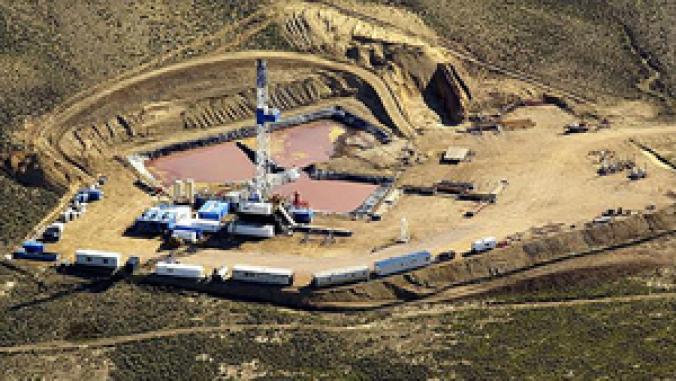Walmart and General Mills Bullish on Sustainable Palm Oil
<p>General Mills and Walmart have both made smart business decisions by committing to use 100 percent sustainable palm oil. Companies that ignore supply chain risks such as deforestation put their company's reputation and profits at risk, and investors are starting to notice.</p>

Image CC licensed by Flickr user a_rabin
Your morning bowl of cereal is about to get more environmentally friendly -- that is, as long as you eat Cheerios, Trix or another General Mills brand.
What many consumers don't know is that food producers, through their heavy use of palm oil, are a major driver of rainforest deforestation in Southeast Asia.
But that is starting to change. General Mills recently issued a statement outlining its plan for "sourcing palm oil in a socially and environmentally responsible manner." Specifically the company committed to purchase palm oil exclusively from members of the Roundtable for Sustainable Palm Oil (RSPO).
Meanwhile, Walmart announced a broad set of sustainable agriculture goals last week, including a commitment to use 100 percent sustainably sourced palm oil for its branded products by late 2015. Just using sustainable palm oil for U.K.- and U.S.-branded products will trim the company's carbon footprint by five million metric tons -- about a quarter of the company's 2015 emissions reduction goal.
These are laudable first steps, and smart business decisions. Companies that ignore supply chain risks such as deforestation put their company's reputation and profits at risk, and investors are starting to notice.
The New York State Comptroller, which controls assets worth $162 billion, and Domini Social Investments filed shareholder resolutions with Sara Lee and Proctor & Gamble asking the companies to commit to adopt plans to source sustainable palm oil and protect rainforests. Both companies have agreed to improve their policies.
The issue is gaining increasing attention worldwide, and has even landed in the pages of The Economist so expect more filings from shareholders this proxy season.
Roughly 85 percent of the world's palm oil is grown in Indonesia and Malaysia, much of it in tropical rainforest areas that are cleared for the palm plantations. These practices are a main reason why a huge swath of rainforest, about the size of Costa Rica, is lost globally every year.
The effects are devastating. Indonesia -- a country with one of the highest deforestation rates -- is the world's third-largest greenhouse gas emitter. And beyond being huge carbon sinks, tropical rainforests shape the local climate and water cycles. Their unparalleled biodiversity constantly yields ingredients for new food and medicine, including cancer drugs, in addition to harboring extensive threatened wildlife and indigenous peoples.
Rainforest destruction presents real material risks to companies, such as reputation risks. Nestle, for example, was embarrassed by Greenpeace this spring when a spoof advertisement featuring a Kit Kat bar made of orangutan fingers went viral.
The company responded. In fact, it is now one of the market leaders, committing to source 100 percent certified sustainable palm oil and to support a moratorium on rainforest destruction.
Beyond the risk to their brand names, companies also face regulatory risks.
At the local level, developing countries are realizing that deforestation is costing them billions of dollars each year from rampant illegal logging, as well as forest fires and lost eco-tourism. If those governments tighten their regulations or step up enforcement, companies purchasing unsustainable palm oil may suddenly face increased prices or disruptions to their supply chain.
At the global level, increased movement towards carbon-pricing systems could benefit sustainable palm producers as carbon markets ramp up and landowners are compensated for avoided carbon emissions.
Last year's Copenhagen summit, for example, saw Britain, Norway, and other developed countries pledge $4.5 billion by 2012 to REDD, a scheme in which developing countries will be paid to conserve rainforests.
With deforestation accounting for about 15 percent of global carbon emissions, a proportion larger than the entire global transportation sector, expect REDD to grow.
Many companies have started to acknowledge the risks, but acknowledgement is one thing and action is another. Even General Mills could go further and commit to purchase 100 percent certified sustainable palm oil, as Nestle has done. Walmart must clarify whether its purchases will be certified.
Moreover, 2015 is more than four years off and millions of acres of rainforest can and will be destroyed before then without change. In the short run, companies should consider alternatives to oils with such large environmental footprints.
Purchasing from RSPO members, which General Mills has pledged to do, is a step in the right direction, but RSPO does not yet require its members to adhere to quantifiable standards for sustainability. That means that a palm oil producer can be an RSPO member but continue to sell palm oil that is not 100 percent sustainably produced.
Nonetheless General Mills and Walmart have committed to do better than many big purchasers of palm oil, as well as suppliers. Major suppliers, including Cargill and ADM, have not made any commitment to sustainable palm oil.
These companies and others need to get on board with the market leaders, and realize that the prudent business decision is to commit to 100 percent certified sustainable palm oil, and to do so soon before the rainforests are further destroyed.
Mindy Lubber is president of Ceres and director of the Investor Network on Climate Risk, a $9 trillion network of investors focused on climate risks and opportunities.
Image CC licensed by Flickr user a_rabin.





